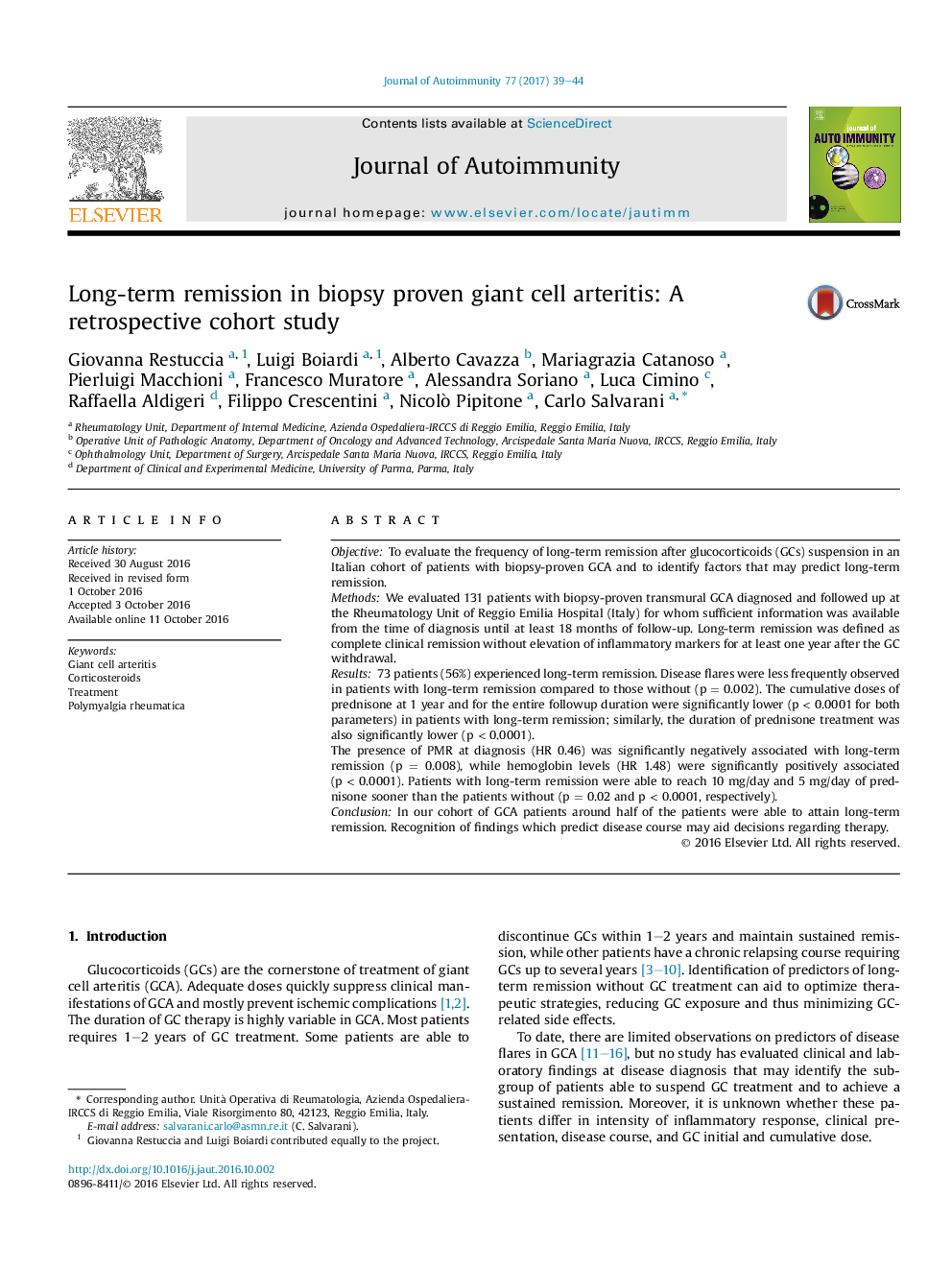| Article ID | Journal | Published Year | Pages | File Type |
|---|---|---|---|---|
| 5667915 | Journal of Autoimmunity | 2017 | 6 Pages |
â¢2 subgroups of GCA patients are present: one with less relapsing disease requiring short-term GCs, the second with more persistent relapsing disease requiring long-term GCs.â¢Nearly half of patients with GCA experience long-term remission after the suspension of glucocorticoids.â¢The coexistence of PMR and lower levels of hemoglobin at diagnosis are associated with a reduced probability of developing long-term remission.
ObjectiveTo evaluate the frequency of long-term remission after glucocorticoids (GCs) suspension in an Italian cohort of patients with biopsy-proven GCA and to identify factors that may predict long-term remission.MethodsWe evaluated 131 patients with biopsy-proven transmural GCA diagnosed and followed up at the Rheumatology Unit of Reggio Emilia Hospital (Italy) for whom sufficient information was available from the time of diagnosis until at least 18 months of follow-up. Long-term remission was defined as complete clinical remission without elevation of inflammatory markers for at least one year after the GC withdrawal.Results73 patients (56%) experienced long-term remission. Disease flares were less frequently observed in patients with long-term remission compared to those without (p = 0.002). The cumulative doses of prednisone at 1 year and for the entire followup duration were significantly lower (p < 0.0001 for both parameters) in patients with long-term remission; similarly, the duration of prednisone treatment was also significantly lower (p < 0.0001).The presence of PMR at diagnosis (HR 0.46) was significantly negatively associated with long-term remission (p = 0.008), while hemoglobin levels (HR 1.48) were significantly positively associated (p < 0.0001). Patients with long-term remission were able to reach 10 mg/day and 5 mg/day of prednisone sooner than the patients without (p = 0.02 and p < 0.0001, respectively).ConclusionIn our cohort of GCA patients around half of the patients were able to attain long-term remission. Recognition of findings which predict disease course may aid decisions regarding therapy.
